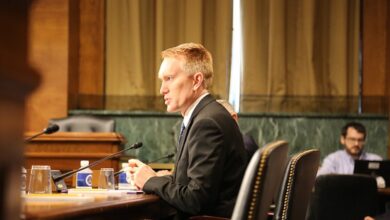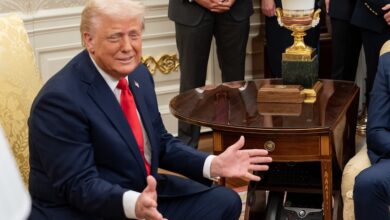Hospital cost transparency big win for patients
A new rule created by President Trump took effect Jan. 1 and medical facilities are not happy. U.S. hospitals and other medical facilities are now required to provide transparency and list prices of medical services online and update them annually after one of the President’s 2016 signature campaign promises took effect.
Previously, hospitals only needed to provide standard pricing to people and only make it available upon request.
The guidelines and effective date, announced in August, require hospitals to list their prices online in an easily readable format, according to the Centers for Medicare and Medicaid Services. The rule also mandates that they update the information at least once a year, or more often if the prices change.
The law is seen as a huge victory for patients shopping for the best price of medical services. Previously, when the Affordable Care Act was designed and passed by Democrats in Congress without a single Republican vote, the rule was purposely kept out of what has become known as “ObamaCare.” Democrats had been heavily lobbied by the health care industry and hospital conglomerates who then pumped a record amount of campaign donations into Democrat campaigns in the following election including that of Hillary Clinton.
But lobbyists were not counting on a presidential campaign that was almost totally funded by private money when someone named Donald Trump entered a field of 16 Republican candidates. Trump ran against ObamaCare.
This is part of the Trump administration’s push to increase transparency in the health care industry and drive patient involvement in health care decisions.
“We know today people are not necessarily satisfied with the experience that they’re having because it’s not always clear what their costs are, what the value of their care is,” CMS Administrator Seema Verma said in a Nov. 27 speech at the American Enterprise Institute (AEI).
“This is a small step towards providing our beneficiaries with price transparency, but our work in this area is only just beginning,” she said in a speech in July at the Commonwealth Club of California.
“Price transparency has been a longstanding issue for uninsured patients, but growing enrollment in plans with higher levels of deductibles and coinsurance is creating a greater demand for meaningful price information for insured patients as well,” the American Hospital Association (AHA) said in a statement.
The AHA also says that because hospital care is “specifically tailored to the needs of each patient,” prices vary widely for the same service.
AHA did say it supports the administration’s goal of making costs more readily available to patients, and that its members would “stand ready to work with policymakers on innovative ways to build on efforts already occurring at the state level.”
Researchers using Google and Bing to find the prices of four non-emergency medical procedures, including a cholesterol panel lab test, in eight cities weren’t able to find full pricing information.
“Our findings really underline how difficult it can be to find the information patients need to be informed consumers,” fourth-year medical student Allison Kratka, the first author on the study, said in a press release. “It is labor intensive to find the sites, many require subscriptions, and the reliability of the pricing information contained in the sites is difficult to assess.”
“There is a disconnect between policies that seek to encourage people to be smarter consumers and the availability of information that allows them to make the most cost-effective decisions,” added Peter Ubel, a professor at Duke University’s Fuqua School of Business. “Policymakers who want consumers to participate in controlling costs need to ensure that prices are available to the average person.”
The study was published as a research letter in the medical journal JAMA Internal Medicine in December 2017.
The transparency change in pricing joins a long list of campaign promises that have quietly gone into effect in the face of national media which cast doubt on their ability to become law.






